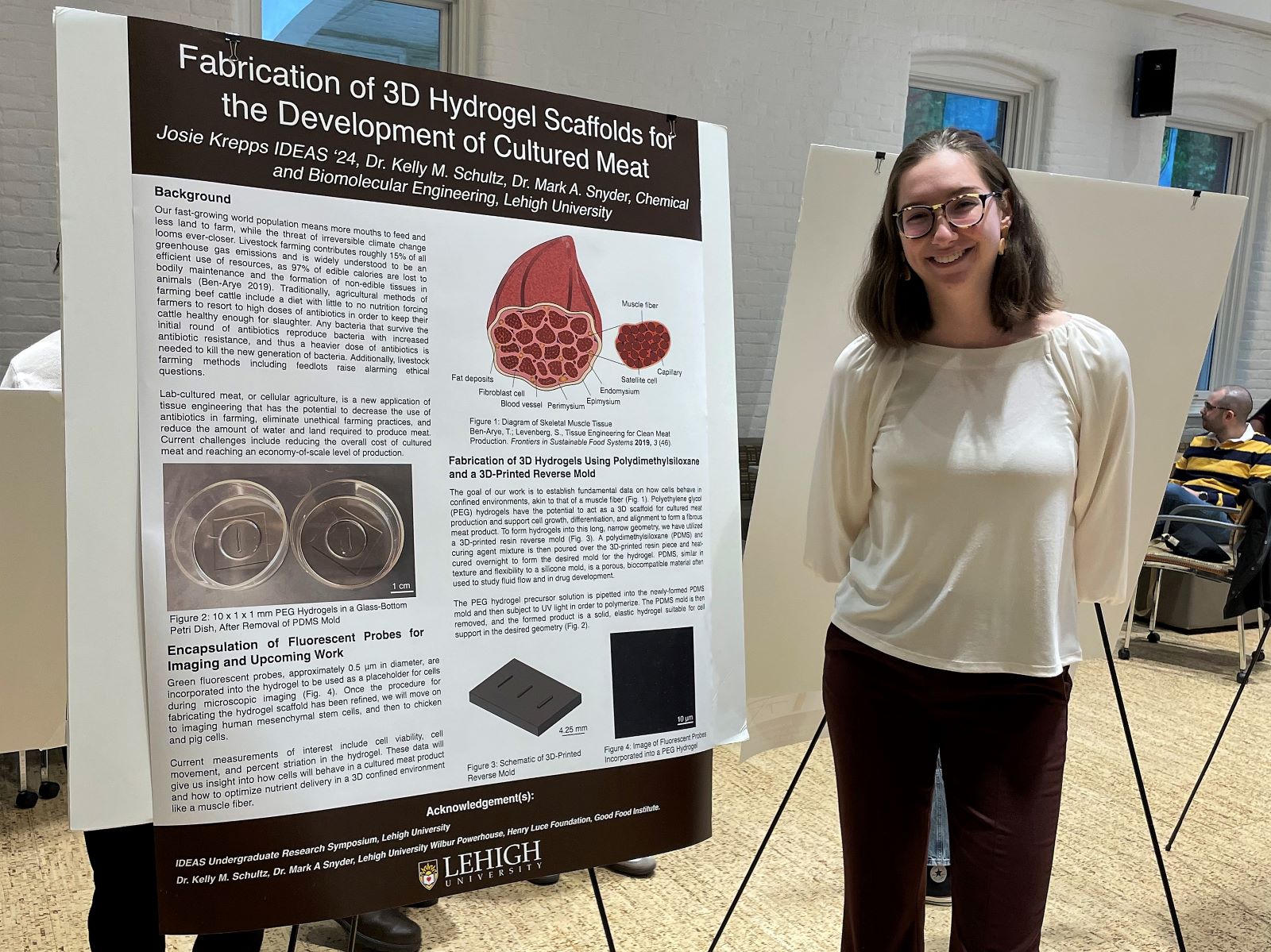
For Lehigh undergrad Josie Krepps ’24, being a Clare Boothe Luce (CBL) Research Scholar offers a glimpse into her hopes for the future.
“I want to pursue my PhD in food science, so experiencing the research process by learning lab techniques like cell culture, using microscopes, and reading academic papers has been very helpful,” says Krepps, who is part of an interdisciplinary team advancing the possibilities of lab-cultured meat.
The CBL Research Scholarship enables high-achieving undergraduate women in engineering to conduct research, with faculty guidance and mentoring, during the academic year as well as over the summer. The program, which is funded by a grant from the Henry Luce Foundation, provides financial support for up to two years. At Lehigh, CBL scholars also take part in community outreach, serving as mentors in the Rossin College's CHOICES camp, and present their work at the college's David and Lorraine Freed Undergraduate Research Symposium.
As an IDEAS (Integrated Degree in Engineering and Arts and Sciences) major, Krepps is carving her own academic journey at Lehigh—pursuing her passion for food science, even though the university doesn’t have a designated department or program. She says the IDEAS program has allowed her to explore her interests at the intersection of food science, engineering ethics, and sustainability and create a unique educational experience tailored to her goals.
Once accepted into the CBL program, she was matched with faculty members in the Department of Chemical and Biomolecular Engineering—associate professors Kelly Schultz and Mark Snyder—and a team of researchers creating a scalable platform to produce “whole cut” meat in the lab.
“Cultured meat production is a more sustainable and ethical alternative to traditional meat production,” Krepps says, “as it results in reduced greenhouse gas emissions and nearly eliminates the need for animal slaughter.” Current methods of raising animals for food also contribute to the growing problem of antibiotic resistance, she explains, which wouldn’t be the case with lab-grown meat.
So far, she has been developing a methodology to encapsulate cells in water-based gels that mimic the physical environment of a muscle fiber. The goal of this work is to study cell behavior and movement in a three-dimensional, confined environment, which would provide insight into how cells would behave in a larger piece of cultured meat.
“It is a constant learning process for everyone, and the team’s diversity and experience help us learn from each other,” says Krepps, who is also a Rossin Junior Fellow. She has also participated in Lehigh’s Campus Sustainable Impact Fellowship and served as a group leader for Engineers Without Borders.
Krepps will continue her work with the research team into this summer and the next academic year. She plans to apply what she learns toward pursuing a doctorate in food science with the goal of making an impact on the future of sustainable, ethical food production.
“PhD programs out there encourage you to have hands-on research experience, especially in a wet lab,” she says. “I'm working alongside PhD students every day and getting a taste of what it’s like to be one—and that’s a good precursor to the route I want to take.”
—Alyssa Caroselli '24 is a student writer for the P.C. Rossin College of Engineering and Applied Science
